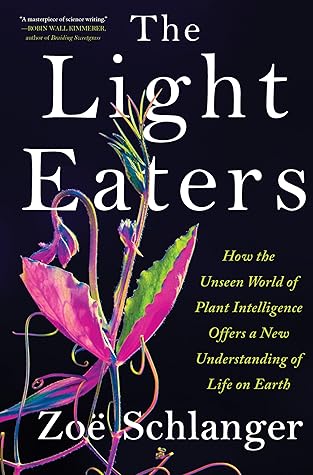More on this book
Community
Kindle Notes & Highlights
Read between
July 27 - August 9, 2025
Plants are the very definition of creative becoming: they are in constant motion, albeit slow motion, probing the air and soil in a relentless quest for a livable future.
But science’s biggest flaw and biggest virtue is that it almost always mistakes agreement for truth.
There is something decidedly queer in all of this—the orchids and aspens and strawberries and antplants and ginkgoes—a sense of sensual entanglement that disregards binaries, runs across the species boundary, and almost gleefully defies heteronormative modes of reproduction.
The words we use for invasive species are very often unsubtle in their xenophobia, matching nativist language. We call them “aliens” and drape tropes on them about being unnatural in their abilities, aggressive by nature, like diseases on the land. But what if they’re just more resourceful, more plastic, better at handling change and passing on wisdom to their young? They certainly disturb our landscapes, and supplant species that we have grown to love, in our short evolutionary stint on the planet so far. But we are the youngest brothers of this family of ours. We haven’t been here that long.
...more
It’s that lack of faith in the public that always results in an erosion of the level of public discourse. A faithlessness in the public is a self-fulfilling prophecy. Remove complexity, and the capacity for complexity degrades farther.


